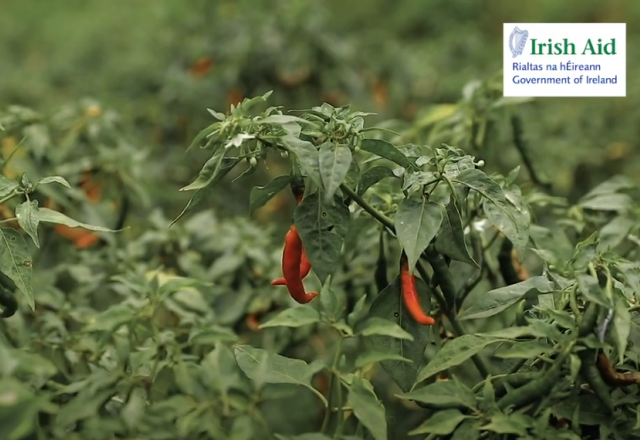Abarikumwe farmer group is part of DUKUNDUMURIMO cooperative. They were not a group two years ago before the project supported them to form a group and registered with a formal farmer cooperative. Farmers used to grow different crops on their own. They grew beans, sweet potatoes, maize, sorghum, and vegetables among others. They didn’t have any modern agricultural practices skills and were not able to produce enough food to feed their families. With the financial support from the European Union delegation in Rwanda, Irish Aid, and the Ministry of Finance and Economic Planning, through the horticulture value chain project (HVC), Oxfam and DUHAMIC ADRI mobilized, and motivated farmers to form a group and work together in a cooperative to increase the production and income.
Abarikumwe group was established and convinced to shift from subsistence agriculture to commercial agriculture by adopting the production of horticulture crops.
After they formed the farmer group, the government of Rwan-da, through the Rulindo district leadership, has offered the members 5 hectares of land in the marshlands of Muyanza sector. ABARIKUMWE Group is made up of 76 members (34 are men and 42 are women) and invested in chili production and marketing since the beginning of 2021 in Burega sector of Rulindo district. The HVC project is strengthening the capacity of Abarikumwe farmer group to adopt good agricultural practices in chili production. The project has been supporting these farmers to access irrigation equipment, and improved seeds as well as linking them to potential mar-kets. They have signed a farming contract with a horticulture commodity export company called VIRUNGA.
Furthermore, the training on co-operative management and specifically financial management enabled farmers to know how to estimate the return on investment. The application of applying postharvest technology to harvested chili enabled farmers to maintain the quality and increase the shelf life of their crop as well as income.
On the same land farmers used to produce different crops only once a year, they are producing chili three times a year and harvest once every week for 7 months. They were supported by the project to access the market and currently each farmer earns around Rwf 100,000 equivalent to £100 per week in a period of 7 months. According to Abishyizehamwe farmer group members, there has been no other crop that generated the same returns per week in their lives.
From the returns, many members of ABARIKUMWE have invested in other sources of revenue and their livelihoods have improved as they tell in this video. The farmer group plans to establish a chili collection center and a cold room to keep their produce fresh while waiting for a market. How-ever, they are still challenged by the high cost of chili seeds which cost around Rwf 4,000,000 per kilogram equivalent to £4000.
This project is funded by the European Union

